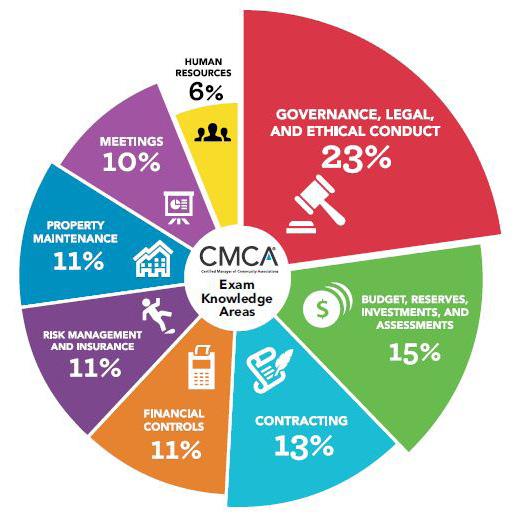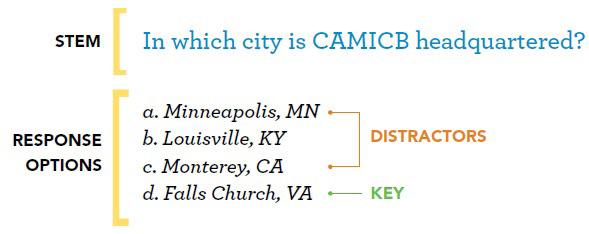
3 minute read
CMCA
CERTIFIED MANAGER OF COMMUNITY ASSOCIATIONS
BY: MS. JULIE WARREN
Community Association Managers are called upon to perform and oversee a wide variety of jobs. An effective manager must have a solid understanding of the principles of human resources, contracting, accounting, psychology, insurance, maintenance, education, government relations, board management, basic construction, and law.
A manager implements the decisions of the association board; administers the services, programs, and operations of the association within the policies and guidelines set by the board; fulfills the terms of his or her contract or agreement; and provides information, training, and, often, advice and assistance to the board as it sets policies and makes decisions.
How can community association board members be sure that the manager they hire can fulfill each of these job duties and be well-versed in the varied responsibilities of association governance and operations?
For the past 25 years, the simplest answer has been to look for four letters after a manager’s name: CMCA.
When the Certified Manager of Community Associations (CMCA) credential was established in 1995, it was intended to offer homeowners and their associations an assurance that their community’s manager possesses the minimum knowledge and skill to perform the job.
“The CMCA is the first, step a manager takes in declaring, ‘I am a professional manager, and I’m going to uphold the appropriate standards for my profession and take my responsibilities seriously. I’m going to uphold a code of ethics and operate in the best interests of the community I’m responsible for,’ “ says Barbara Byrd Keenan, FASAE, CAE, CAI’s chief executive officer from 1990 to 2002 who helped launch the program.
Today, as the CMCA and the organization that administers this important certification—the Community Association Managers International Certification Board (CAMICB)—celebrate their 25th anniversary, more than 20,000 professionals have launched successful careers in the community association management business by first earning and then maintaining this esteemed credential.
“The CMCA is a first, step for anyone looking to establish a career as a professional manager,” says John Ganoe, CAE, CAMICB’s executive director since 2012.
1-2-3 CMCA
Community Association Managers interested in obtaining the CMCA credential can do so by following these three steps.
1. Fulfill at least one prerequisite requirement.
Option 1: Education. Complete and pass one prerequisite course on community association management.
Option 2: Experience. If you have at least five years of experience as a community association manager, you may receive a one-time waiver of the prerequisite course. The experience must be as a community association manager—not as an assistant manager. If you do not successfully pass the examination the first time, you will be required to take the prerequisite course prior to retaking the examination.
Option 3: License or Credential. Hold an active Arizona CAAM, California CCAM, Colorado CAM, Florida CAM, Illinois CAM, or Nevada CAM.
2. Complete and submit the online application for the CMCA examination on the CAMICB website.
3. Successfully pass the CMCA examination.
For more information, visit www.camicb.org.

Knowledge Test
The Certified Manager of Community Associations (CMCA) exam tests participants on governance, legal, and ethical conduct; budget, reserves, investments, and assessments; contracting; financial controls; risk management and insurance; meetings; and human resources.
The CMCA exam is a standardized multiple-choice exam consisting of 120 items: 100 scored and 20 pilot-test items. Each question is meticulously designed with the following parameters:
• Tests knowledge outlined on the exam blueprint
• Is complete, straightforward, and clear • Has one correct response and three incorrect distractors
• Has a valid source reference that can be used to justify the key

Julie Warren is a Virginia-based freelance writer and former editor of Community Manager newsletter.

This article was pulled from the story “Certified Success. With vision and determination, the CMCA celebrates 25 years as an internationally recognized professional standard for community association managers,”written by Julie Warren in the Community Associations Institutes’ publication ‘Common Ground’ (January/ February 2020).










